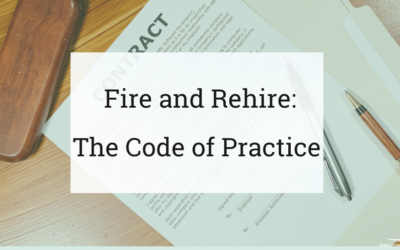In our last blog (which you can find here) we looked at zero-hours workers amongst other things which can be a great solution to staffing needs. Our lawyers have seen a large increase in the number of young workers being recruited to fill the gaps when it comes to seasonal roles, perhaps due to the tight recruitment market.
Recruitment of young workers comes with its own unique set of difficulties that employers need to manage.
Employment of Children
The employment of children is a heavily regulated area, the Children and Young Persons Act 1933, supplementary laws all have a hand in the regulation of how and when you can employ a child.
Local Authorities can divert from national legislation by implementing local byelaws to suit local customs and requirements. The government has published recommended byelaws, which many authorities have adopted and many more adapted.
National Regulations
A child under the age of 14 cannot usually be employed however, this rule can often be relaxed by local byelaws to allow the employment of 13 year olds, this varies between local authorities. Find your local authority here.
Working Hours
A child cannot work before 7 am or after 7 pm and may not work before the end of a school day on any day that they have had to attend school. However, this is frequently relaxed by local byelaws to allow one hour’s work before school starts.
The amount of hours that a child can work each day and each week varies depending upon;
- If it’s a school day or not;
- If the child is over 15 or not.
- If it’s a Sunday.
Don’t forget the specific Sunday Working rules that apply to retail businesses. Our useful How to Guide can be found here.
A child can work for four hours but then must have a break of a continuous hour. Lots of small breaks are not considered. Further, a child must have a two-week continuous break from work each year and this must be taken during school holiday time.
Type of work
A child may only be employed to do light work, which is work that due to “the inherent nature of the tasks which it involves and the particular conditions under which they are performed is not likely to be harmful to the health, safety or development of children and is not such as to be harmful to their attendance at school or to their participation in work experience, or their capacity to benefit from the instruction received or the experience gained”.
The physical stature and strength of a child has to be considered alongside this definition when allocating work.
The recommended byelaws set out types of light work for children under 14 which would be appropriate and includes; office work, agricultural or horticultural, car washing, delivery of newspapers, shop work and domestic work. However, local authorities can vary these byelaws to suit local customs and needs. Children over 14 can do any light work apart from that which has been expressly prohibited.
Prohibited types of work
The expressly prohibited forms of work are wide and varied. Health and safety plays a large role here, children cannot work beyond the mental and physical capacity or with harmful substances. They cannot work in extremes of noise or vibration, hot or cold, and any risk must be assessed in accordance with their attention span, etc.
There are more obvious exceptions for example working in an industry which can include mines and queries and transport, the sale of alcohol, working in gambling institutions, and employment on boats. However, each Local Authority can add further prohibitions.
For example, in Cheshire East, a child cannot be employed to work in a cinema, theatre, or disco except for where the performance is to be given entirely by children, and interestingly a child can sell alcohol providing that it is in a sealed container.
Work permits
The recommended byelaws included a permit system so that any employer must obtain a permit prior to employing a child, many Local Authorities have followed the lead on this issue. The permit can itself place conditions on employment and so the local byelaws must be read before employing a child to ensure the deadlines for an application are complied with if needs be. You can find your local authority here.
Risk Assessment
When employing children or young workers there are additional health and safety duties that employers must comply with. An additional health and safety risk assessment should be carried out which takes into account:
- Inexperience, lack of maturity or awareness/experience
- The layout of any workstation
- The nature and degree of exposure to physical, biological or chemical substances
- The range and use of equipment necessary
- Organisational processes and activities
- Any necessary training needed
- And any other risk relevant to the job.
Employment Law Solutions can help!
FRA Members benefit from 60 minutes of free telephone and email advice every calendar month!
We are an employment law service offering employment law advice for employers. With a wealth of knowledge in curing HR headaches for employers across the UK, Employment Law Solutions can offer comprehensive, stress-free, and pragmatic advice on employment law, including restrictive covenants, post-termination restrictions, and furlough.
The HR Helpline is open Monday-Friday 9 am-5 pm but for other clients, we offer 24/7, 365 guidance with a mission to help you get on with doing what you do best – running your business. Protecting your business will always be our main priority.




